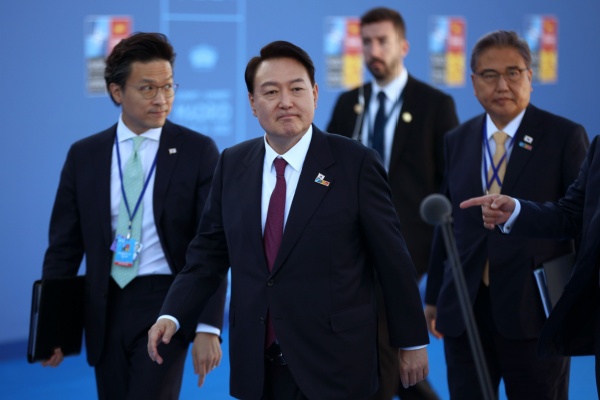K-Silk Road: Korea Unveils New Strategy for Central Asia
By Mehmet Fatih Oztarsu
July 3, 2024
President Yoon Suk Yeol of the Republic of Korea recently visited the Central Asian republics of Turkmenistan, Kazakhstan, and Uzbekistan. Prior to his tour, he introduced the “K-Silk Road” initiative, highlighting his role in guiding Korea’s future interactions with the region. While this initiative builds upon Korea’s longstanding policies, it signifies a desire to forge a new chapter in Central Asian relations. Despite its shortcomings and some neglected areas, this initiative is a significant step forward in the context of regional relations. 
Uzbekistan and South Korea: towards a special relationship
By Mirzokhid Rakhimov and Sung Dong Ki
June 10th, 2016, The CACI Analyst
South Korea’s Prime Minister Hwang Kyo-ahn visited Uzbekistan on May 19-20, 2016. The visit was the fifteenth official high-level meeting between the two countries. Over the last year, several new actors have increased their engagement with Central Asia, aside from South Korea also including Japan and India. South Korea is an important partner to the Central Asian republics, and especially to Uzbekistan. In May 2015, Islam Karimov made Seoul the destination of his first foreign visit after his reelection as president. The visit underscored the priority given to South Korea in Uzbekistan’s foreign policy. South Korea is among the largest investors in Uzbekistan’s economy, and cooperation is growing in education, tourism, cultural exchanges, and security.
Building on Kerry's Central Asian tour
By Richard Weitz
December 22nd, 2015, The CACI Analyst
In early November, John Kerry made a long overdue trip to Central Asia, becoming the first Secretary of State to visit all five Central Asian countries in one diplomatic tour. His agenda focused on reassuring the regional governments that the United States cares about their concerns, specifically Afghanistan and religious extremism. Kerry also highlighted U.S. support for region-wide economic integration, ecological protection, and cultural and humanitarian cooperation. He further developed bilateral cooperation with each Central Asian government. However, there were no major agreements or blockbuster initiatives announced during Kerry’s visit. It will require sustained follow-through by the current and next U.S. administrations to achieve enduringly positive results.





 Silk Road Paper S. Frederick Starr,
Silk Road Paper S. Frederick Starr,  Book Svante E. Cornell, ed., "
Book Svante E. Cornell, ed., "